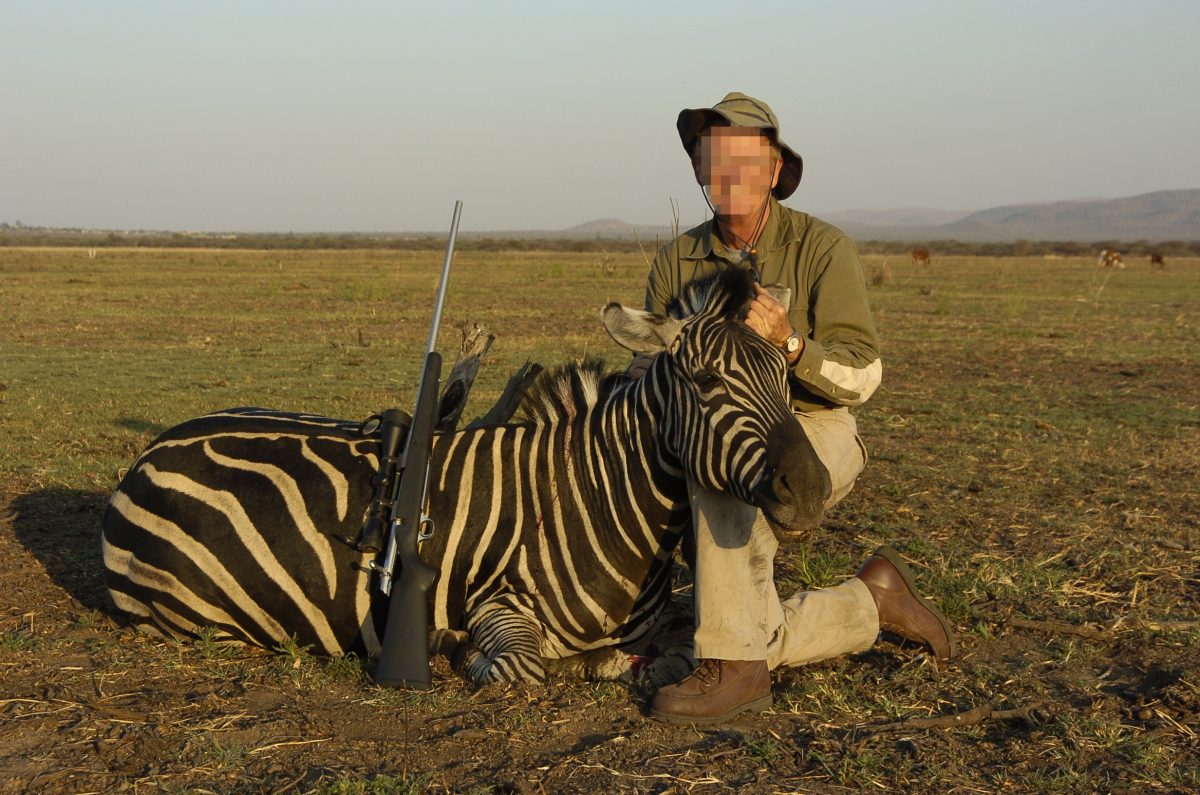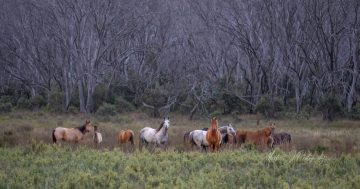
A hunter poses with a zebra he shot at a captive hunting ranch in South Africa. Photo: Supplied by Humane World for Animals.
Trophy hunting has made a cameo in the federal election campaign. Environmentalists say they have secured agreement from enough political parties and candidates to have a ban imposed on trophy imports to Australia.
Humane World for Animals (formerly the Humane Society International) is excitedly pushing the line that the 3 May election could mark the end of the practice with potential for a legislative ban imposed in the next term of government.
The ALP, the Greens, Animal Justice Party and several independents have committed to banning the import of hunting trophies as part of their election promises.
Humane World for Animals says Labor’s position places the ALP, which has committed to banning the 20 most imported species as trophies to Australia, as the ‘spearhead’ of the push.
Among the most imported species are the brown bear, American black bear, wolf, giraffe, cougar, hippopotamus, polar bear, Canada lynx, Hartmann’s zebra, chacma baboon, caracal and vervet monkeys.
Nicola Beynon, head of campaigns for the Australian office of Humane World for Animals, welcomed the Australian politicians’ commitments.
“Wildlife belongs in the wild not on the wall and no animal deserves to be killed as a trophy,” she said.
“Trophy hunting is an outdated and cruel practice which is not supported by the majority of Australians.
“Ending the international trade in hunting trophies can help disincentivise the exploitative practice of trophy hunting and pave the way for humane industries and sustainable development opportunities.”
Ms Beynon said her organisation was grateful Labor – supported by several independents, the Greens, Animal Justice Party and other minor parties – had committed to regulate against the import of hunting trophies.
“Unfortunately, the Liberal and National parties have not met community sentiment on this issue and failed to match the commitment,” she said.
“We would encourage them to reconsider this position should they win government.”
Federal election candidates provided their commitments in response to policy questions sent by the Australian Alliance for Animals, of which the Australian office of Humane World for Animals is a member.
Trophy hunting involves the killing of wildlife purely to display parts of the animal, often the head or skin.
Animals can endure slow and painful deaths as hunters, some quite unskilled, shoot to preserve the head and skin rather than prioritise a quick kill.
Australia’s role in the trophy hunting trade was detailed in a 2022 report, Trophy Hunting by the Numbers.
Despite its relatively small population, Australia ranked 10th in the world from 2014–2018 for global trophy imports of mammal species listed under the Convention on International Trade in Endangered Species (CITES).
Over the past decade Australians have imported more than 1000 hunting trophies from 46 CITES-listed mammal species, including iconic hippos, grey wolves and polar bears.
Pressure subsequently ramped up to keep the issue in the sights of Australian politicians.
Species listed under CITES are either currently threatened by overexploitation through trade or may become so if trade is not regulated.
It is estimated at least 20,000 of the hunting trophies traded annually are from threatened species.
Trophy hunting supporters claim their exploits are good for conservation. However, hunters seek the healthiest and reproductive-aged animals for trophies.
This impacts health and resilience, and reduces long-term population viability and species survival for already threatened animals.
Humane World for Animals says trophy hunting is economically insignificant as tourism revenue and employment because it is often conducted on private farms or state reserves.
It says the money from such activities is split between foreign hunting companies and local elites, rarely making it to local communities. Trophy hunting also serves as an obstruction to innovation and investment in alternative industries or resource uses.
Australian Alliance for Animals policy director Jed Goodfellow said the responses from parties and candidates about banning trophy imports proved animal welfare mattered to voters.
“Despite cost-of-living pressures and international uncertainty, animal welfare remains important to Australians and we’re seeing this reflected in the parties’ positions,” Dr Goodfellow said.
“These are commonsense policies that will be warmly welcomed by the Australian community.
“With over 90 per cent of Australians believing animal welfare is important and supporting laws that ensure animals are provided with a good quality of life, strong animal welfare policies are a great way for parties and candidates to show people they care.”
Original Article published by Chris Johnson on Region Canberra.



